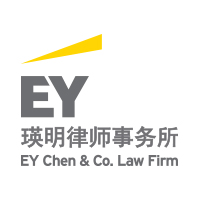The Guidelines on Further Steering and Standardizing the Direction of Outbound Investments (the No. 74 guidelines) was approved on 4 August 2017 by the State Council. Since regulation was heightened in 2016, this is the first official document that specifies the authorities’ approach to outbound investments, the permitted investment models, and subsequent protective measures required to be taken. An increasingly clear picture of new regulatory and policy trends in connection with outbound investments since the second half of 2016 thus comes to the surface.

Partner
EY Chen & Co. Law Firm
Authenticity and compliance review on foreign exchange flows. Some enterprises concentrate their outbound investments in sectors not belonging to the real economy. Contradictory to the overall objective of driving domestic growth, such investments cause substantial cash outflows affecting the financial security of China. That was why the NDRC and another three authorities said at a press conference on 6 December 2016 that the regulators were scrutinizing the recent irrational outbound investment spree in assets that included, but were not limited to, real estate, hotels, film centres, entertainment business and sports clubs.
The Notice on Further Promoting Foreign Exchange Control Reform and Improving Authenticity and Compliance Review subsequently, issued by the State Administration of Foreign Exchange, requires domestic institutions that undergo direct outbound investment registration and outward remittance procedures to provide banks with a statement of the source and purpose of funds, resolution(s) of the board of directors (or partners), contracts and other appropriate proof of authenticity, in addition to any materials that must be submitted for review. Banks are required to strengthen authenticity and compliance review pursuant to the principles for conducting business.
According to the above-mentioned policies, outbound investments will not be prohibited as long as they are authentic and comply with applicable laws and regulations. However, strengthened authenticity and compliance review means that it will take a longer time to complete an outward remittance transaction.
You must be a
subscribersubscribersubscribersubscriber
to read this content, please
subscribesubscribesubscribesubscribe
today.
For group subscribers, please click here to access.
Interested in group subscription? Please contact us.
你需要登录去解锁本文内容。欢迎注册账号。如果想阅读月刊所有文章,欢迎成为我们的订阅会员成为我们的订阅会员。
Author: Lin Zhong is a partner at EY Chen & Co. Law Firm




























